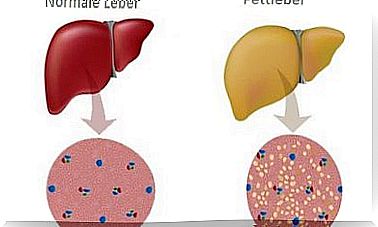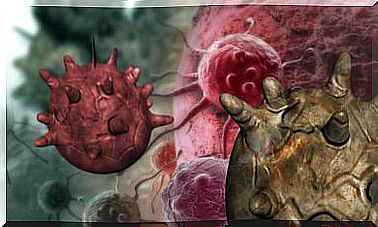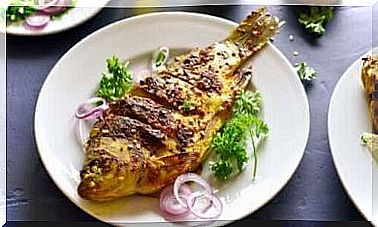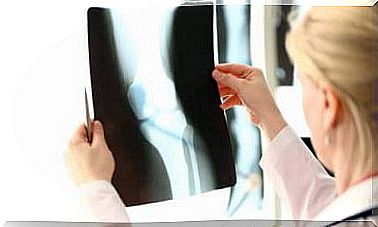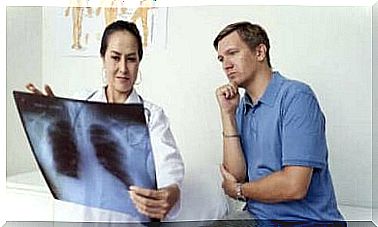Nutrition For Sportily Active Women
Sporty active women must by no means eat too little in order not to damage their muscle mass. You can find out how to do this here.

Active women often make the mistake of combining exercise with diet and not eating enough for their increased physical activity. Exercise is part of every diet, but if you eat too little and exercise too much, you lose muscle mass and not fat. That’s not smart, is it? Learn how to eat smart and exercise.
Sporty women need calories
Many women who are active in sport think too often about their slim figure than would be good for them, their muscle mass and their success in sport. Sporty women should pay more attention to a muscle-healthy diet than to the weight on the scales, because with muscle building and fat loss, the weight remains the same, although the body composition improves.
The goal that sporty women often have in mind is to be slim and muscular at the same time. In order to achieve this, many make the mistake of not overeating. But in doing so they destroy their muscle mass, which is important in sport and increases the basal metabolic rate.
Muscle building through sport should come first for active women, because the increased muscle mass means that the fat can be burned much more effectively, because the “muscle motor” is now bigger and needs more “fuel” to keep running. But which “fuel” do sporty women have to “fill up” with?
carbohydrates
The main source of energy for almost all types of activity is carbohydrates. If you eat too little of it, the carbohydrate stores in the muscles and the liver are under-stocked, which limits physical performance. An optimal supply of carbohydrates noticeably improves the overall constitution of the body.
Carbohydrates are stored as glycogen in the liver and muscles, but unfortunately only very little, so that these stores are exhausted after 90 – 180 minutes of endurance training (e.g. jogging).
Therefore, if you start sports with insufficient glycogen stores or empty them without replenishing them, you have to expect the following consequences:
- premature fatigue
- worse performance
- increased risk of injury
- slower recovery
It is therefore important to effectively replenish this energy store, especially after exercise, in order to continue to perform well.
When should I eat what?
There are two different types of carbohydrates that you should be able to distinguish in order to provide your muscles with the right “fuel” at the right time:
- complex (bread, pasta, rice, cereal products, muesli, …), i.e. starch products, and
- simple carbohydrates (fruit, sweets, biscuits, …), so sugar products.
The body converts both types of carbohydrates to glycogen, but at different rates. The complex carbohydrates are absorbed in the blood in the form of glycogen more slowly than the simple carbohydrates. It is therefore crucial what kind of carbohydrates are consumed at what point in time.
It is most sensible to eat complex carbohydrates about an hour before exercise, for example lots of muesli and bread, as you build up a certain “supply” of glycogen, which is gradually released into the blood.
Shortly before exercise and during endurance sports, it makes sense to maintain the glucose stores with quickly usable simple carbohydrates.
In endurance sports such as jogging, the body loses around 20 – 60g of glycogen per hour, depending on the muscle mass (i.e. the glycogen storage) and the level of exertion of the athlete. These 30-60g have to be refilled continuously in order to remain efficient. This works best in the form of beverages that are high in simple carbohydrates, or in the form of sweets or fruit.
Even after exercising, it is important to continue to ensure that glycogen stores are fully replenished in order to recover better. This means that women who are active in sport should continue to eat and drink high in carbohydrates even after exercising.
protein
During normal physical activity, the (normal weight!) Body must be supplied with approx. 0.8 g of protein per kilo of body weight. The actual protein intake in Germany exceeds this recommendation by approx. 50% and is approx. 1.2 g per kg of body weight per day.
This value of 1.2g per kilo of body weight corresponds exactly to what the body should be given to build muscle during training phases.
Therefore, a protein intake through special protein preparations is not necessary, on the contrary: Excessive protein intake stresses the kidneys, as excess protein is not metabolized but is excreted again. So forget about protein powder!
Under the most extreme training conditions, a maximum protein intake of 2g per kilo of body weight is advisable for active women – but let’s be honest, do you really train as hard as an extreme athlete? Women who are active in sport can also achieve this 2g through normal food without special protein preparations.
Sporty women of 70 kg body weight therefore need (70 × 0.8 g) 56 g of protein per day. This corresponds to approx. 18g per meal (with 3 meals) and that in turn corresponds to a piece of meat of approx. 100g. And that’s a steak only about the size of a playing card! So don’t worry – you will get more than enough protein through a normal diet.
Don’t forget to drink!
Every adult, even without physical activity, needs 1-2 liters of water (or: calorie-free drinks) per day. For sporting activity over 30 minutes, a fluid intake of 100 – 250 ml per 15 minutes (!!!) is recommended, i.e. about 1 liter per hour.
It is therefore ideal to combine the intake of sufficient fluids with the intake of carbohydrates, preferably with isotonic sports drinks that optimally rehydrate the body.
